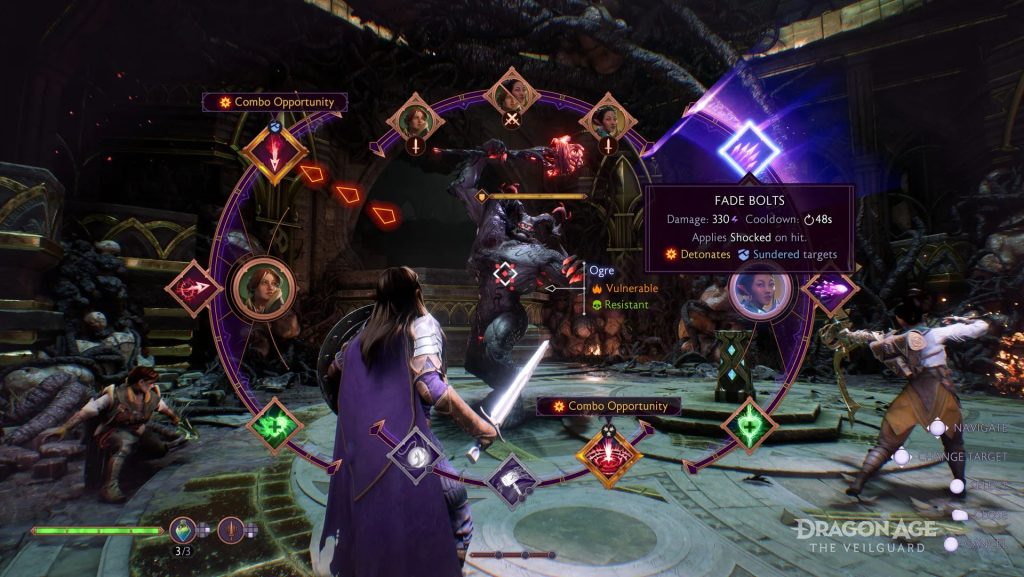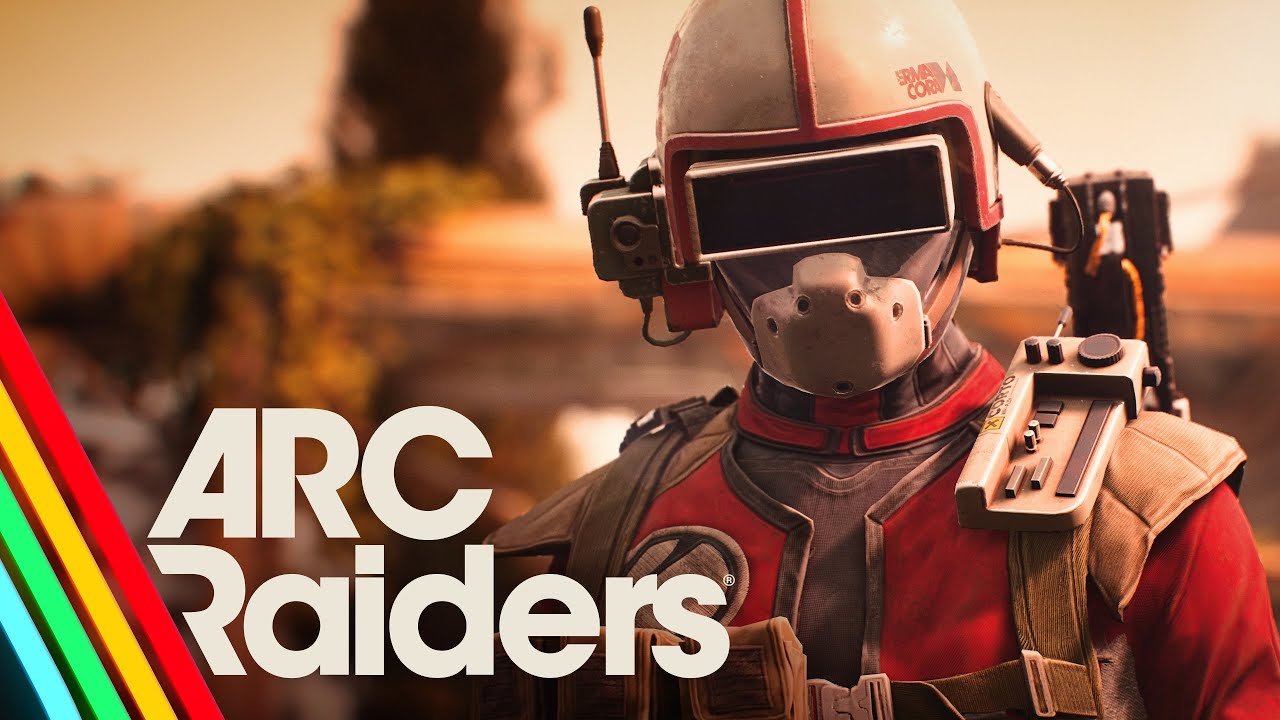With the Ability Wheel, players can queue up companion abilities and combos that will play out when shifting back to real-time.
Unlike previous entries, which featured a mix of real-time with pause and turn-based combat, Dragon Age: The Veilguard’s battle system is completely real-time. It’s a natural evolution for BioWare, but that doesn’t mean it’s completely abandoned its roots. An Ability Wheel is present for players to select companion abilities, create combos and even specify targets to attack.
However, game director Corinne Busche revealed to Game Informer that some companions have “more explicit synergies.” Of course, if you want to leave your companions alone and focus on yourself, that’s also an option. As Busche explains, companions are “their own people. They have their own behaviors. They have their own autonomy on the battlefield, and they pick their own targets. As their plots progress, they’ll learn how to use their abilities more competently, and it really feels like you’re fighting alongside these realized characters in battle.
“I see all the abilities Harding has, and I see everything that Bellara is capable of. And sometimes, I’m using vulnerabilities synergistically. Maybe I’m pausing or slowing time with Bellara, so I can unleash devastating attacks with Harding, knocking down the enemy. As Rook, I’m rushing in and capitalizing on this setup they’ve created for me. It is a game about creating this organic sense of teamwork.”
Players can also queue up abilities and combos while directing their allies. Upon releasing the Ability Wheel, everything will play out as ordered. Many players also noticed protagonist Rook switching between dual blades and a bow in the extended gameplay reveal. It isn’t limited to Rogues – you can create two separate weapon loadouts and swap between them during combat. The inventory screen also allows for cross-comparing equipment when equipping your party.
Launching this Fall for Xbox Series X/S, PS5 and PC, Dragon Age: The Veilguard eschews the open-world structure of its predecessor for a mission-based approach.







